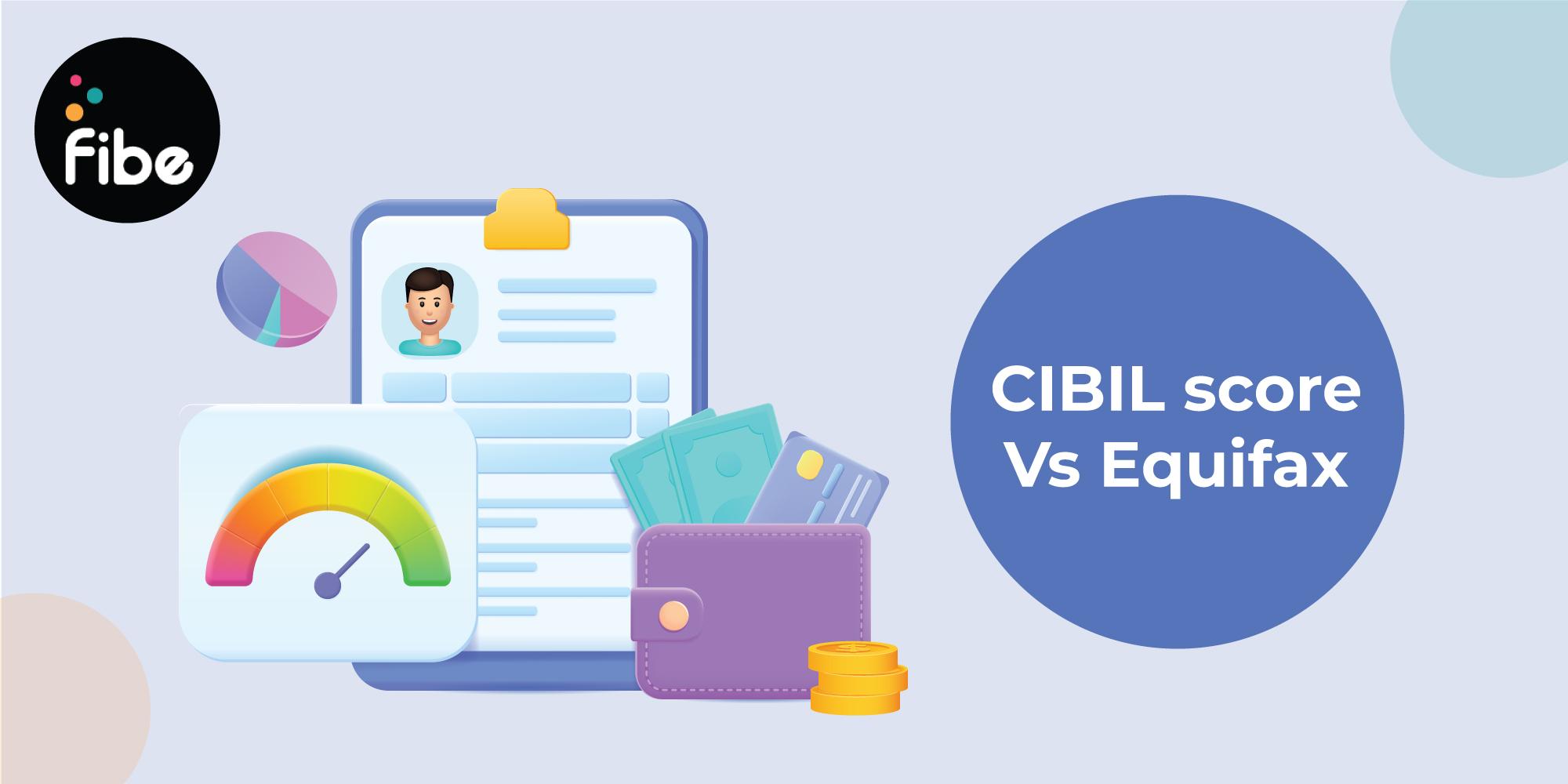- Home
- Blogs
- Credit Score
- Difference Between Cibil And Equifax
CIBIL Score vs Equifax: Key Differences Explained
Reviewed by: Fibe Research Team
- Updated on: 16 Apr 2025
Reviewed by: Fibe Research Team

Be it an Equifax credit report or a CIBIL credit report, all lenders check your credit history and score while reviewing your application for any type of credit. These details give them insights about your financial standing and creditworthiness.
However, you don’t get the same score from all bureaus, nor do all lenders access your credit report from the same bureau. Some may use the report generated by TransUnion CIBIL, while some rely on Equifax or other credit bureaus.
Since these reports have an impact on your eligibility, understanding the difference between them is crucial in choosing a lender with whom you have the best chances of approval.
So, read on to know what CIBIL and Equifax scores are, their differences, steps to check them and more.
Generated by TransUnion CIBIL, your CIBIL score is a three-digit numeric representation of your creditworthiness. It ranges between 300 and 900 and a higher score represents a good credit history and behaviour. The bureau calculates this score based on the information present in your CIBIL report.
Your CIBIL report includes all your account details, such as repayment history, types of credit taken, number of accounts, account duration and more. TransUnion CIBIL assigns a fixed weightage to the four main credit factors in the following manner:
This is also a three-digit score ranging between 300 and 900 generated by Equifax Credit Information Services Private Limited. Given this, the scoring method differs, and therefore, your score does too.
To calculate your score, the bureau allocates the following weightage to these credit factors:
Here are the key differences between the two credit bureaus:
| Particulars | CIBIL | Equifax India |
|---|---|---|
| Date Established | 2000 | 2010 |
| Credit Report | CIBIL credit report gives detailed information under different categories | Equifax credit report has in-depth data along with a pictorial representation |
| Credit Score Range | 300-900 | 300-900 |
| Factors considered | Repayment history, credit exposure, type, and duration | Repayment history, credit utilisation, credit length and type |
| Dispute resolution | Can raise a dispute online and offline | Can file a dispute through the website or by emailing nodal officers |
| Subscription | ₹550 onwards | ₹250 onwards |
You can get one free CIBIL and Equifax credit report with a credit score annually, which you can generate on the respective bureau’s official website.
Here are the steps to get a free credit report and score from the CIBIL website.
To generate a free Equifax credit report with your credit score, follow these steps:
Once you have downloaded the credit reports, you can check your scores and review your credit history. If you notice any errors or discrepancies in either of the reports, you can raise a dispute with the concerned bureau.
If you notice a low score while reviewing your CIBIL or Equifax credit report, here are some tips you can implement to improve it.
With these tips, you can easily improve your score. Remember, most lenders prefer a credit score of 700 and above. However, with Fibe, you can apply for a loan without worrying about your credit score.
We rely on a proprietary alternative credit scoring method and thus, offer credit to borrowers who are new to credit or have less-than-ideal scores. You can easily apply for an Instant Personal Loan and get up to ₹5 lakhs with minimal paperwork and at a pocket-friendly interest rate. Download our Personal Loan App or register on the website to apply.
Both bureaus are equally good in terms of reliability and validity. However, TransUnion CIBIL is more commonly used by Indian financial institutions.
Yes. However, there may be a possibility of discrepancy if the information submitted by the financial institution is not updated to the latest transaction or if you have made a payment after the institution has submitted your details. In this case, you can raise a dispute to rectify the errors.
The credit score for Equifax ranges between 300 and 900, but any score above 700 is considered a good score. However, this may vary depending on the financial institution you choose.